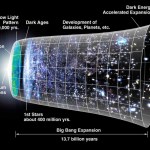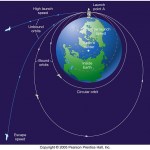stellar evolution
“Aristotle taught that stars are made of a different matter than the four earthly elements— a quintessence— that also happens to be what the human psyche is made of. Which is why man’s spirit corresponds to the stars. Perhaps that’s not a very scientific view, but I do like the idea that there’s a little starlight in each of us.” -Lisa Kleypas
Ah, but what if you did want the scientific view of starlight? After all, it's through the very stars themselves that we've unveiled some of the greatest secrets of the Universe.
Image (mosaic) credit: Nick Risinger.
But while the stars of the…
"The ruins were just a reminder that what had been was no longer. That everything we are will be gone someday. That I will be forgotten." -Megan Miranda
Some four-and-a-half billion years ago, a ultra-massive cloud of cold gas and dust collapsed, giving rise to thousands of stars of all different types, from hot, massive, quick-burning blue stars down to low-mass, cool red dwarfs. And within a few hundred million years, that open star cluster dissociated, flinging the individual stars that once made it up throughout the galaxy. The lone remnant of that cluster known to us lights up our…
"We have been forced to admit for the first time in history not only the possibility of the fact of the growth and decay of the elements of matter. With radium and with uranium we do not see anything but the decay. And yet, somewhere, somehow, it is almost certain that these elements must be continuously forming. They are probably being put together now in the laboratory of the stars." -Robert Millikan
The Universe has been around for a long time, but without the Big Bang, we'd never have any of the matter or starlight that gives rise to practically all of our experiences in the entire…
You and I have lived on planet Earth long enough to know that if you want to launch something into space, it needs to travel fast enough to escape the pull of Earth's gravity. Launch it with too slow of a speed, and it crashes back into Earth. Launch it with a little more speed, and you can send it into orbit (like a satellite). But launch it fast enough, and it can escape from Earth's gravity altogether. The speed to completely escape from Earth's gravity is pretty fast: about 11.2 km/s, or 7 miles per second!
Make something denser and more massive, and you'll have to go faster and faster…



